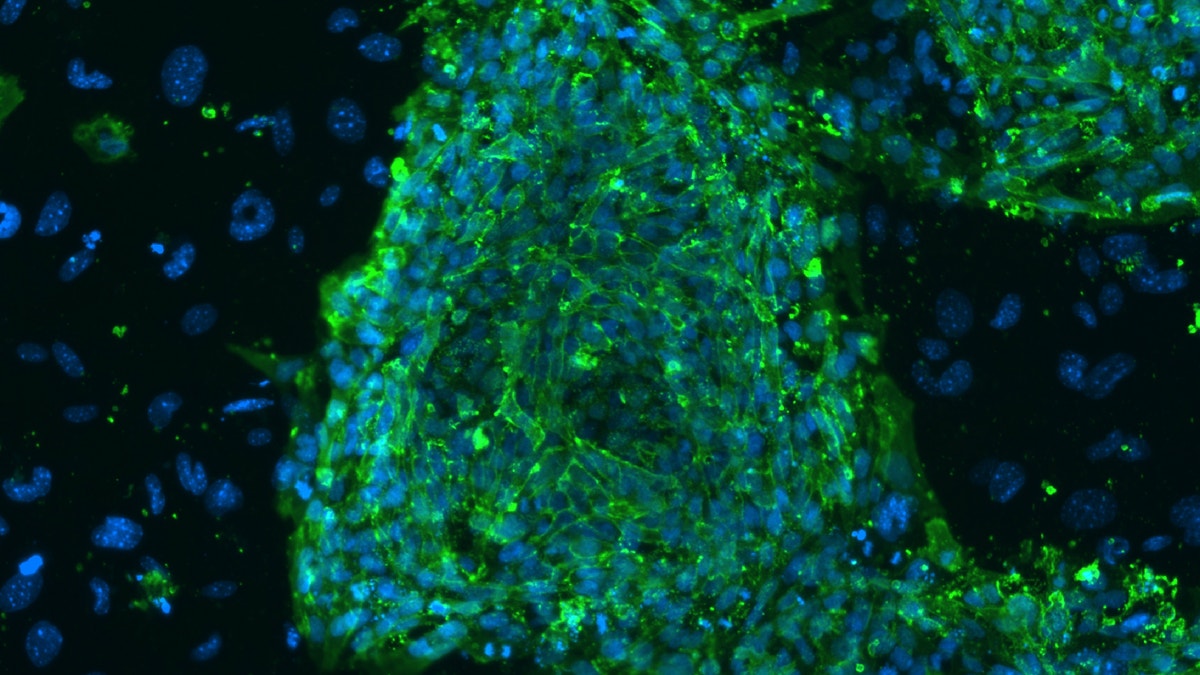
A fluorescent microscope image shows human embryonic stem cells in this photo taken at Stanford University and released by the California Institute for Regenerative Medicine. (REUTERS/Michael Longaker/Stanford University School of Medicine/California Institute for Regenerative Medicine/Handout)
Researchers said they created an embryonic clone of a 32-year-old woman with diabetes, extracted healthy stem cells from the clone, and then changed those cells into fresh ones that produce insulin.
The long-term hope would be to transplant new insulin-producing cells back into a patient and treat diabetes, which occurs when the body's natural ability to produce insulin is impaired. The transplanted tissue would be accepted because its genetic makeup matches that of the patient.
The experiment, reported Monday in the journal Nature, marks another medical advance for cloning technology. Earlier this month, a separate team of scientists used a similar approach to make fresh tissue from adults for the first time.
In the Nature study, researchers put the patient's DNA into a human egg that had its own DNA removed. The egg activated the patient's DNA and created an embryonic clone of the patient—a minuscule ball of healthy stem cells, which have the potential to become all other cells in the body. Further manipulation changed the stem cells into insulin-producing beta cells.
"We find the cells make just as much insulin as the [cells naturally found] in a human pancreas," said Dieter Egli of the New York Stem Cell Foundation, who led the team that published the Nature study.
Dr. Egli and his colleagues now plan to transfer the freshly-made beta cells into mice to see how stable and safe they are, and whether they can cure diabetes in the animals. Years of additional animal experiments will be needed before the same approach can be tried in people, and some major hurdles will need to be addressed.
